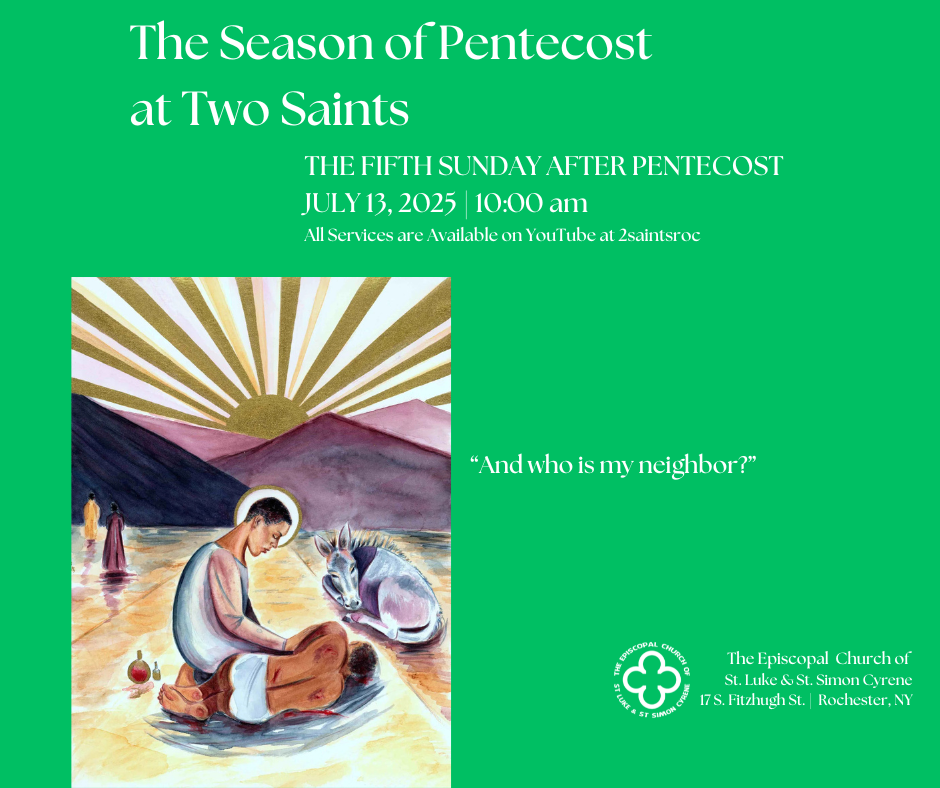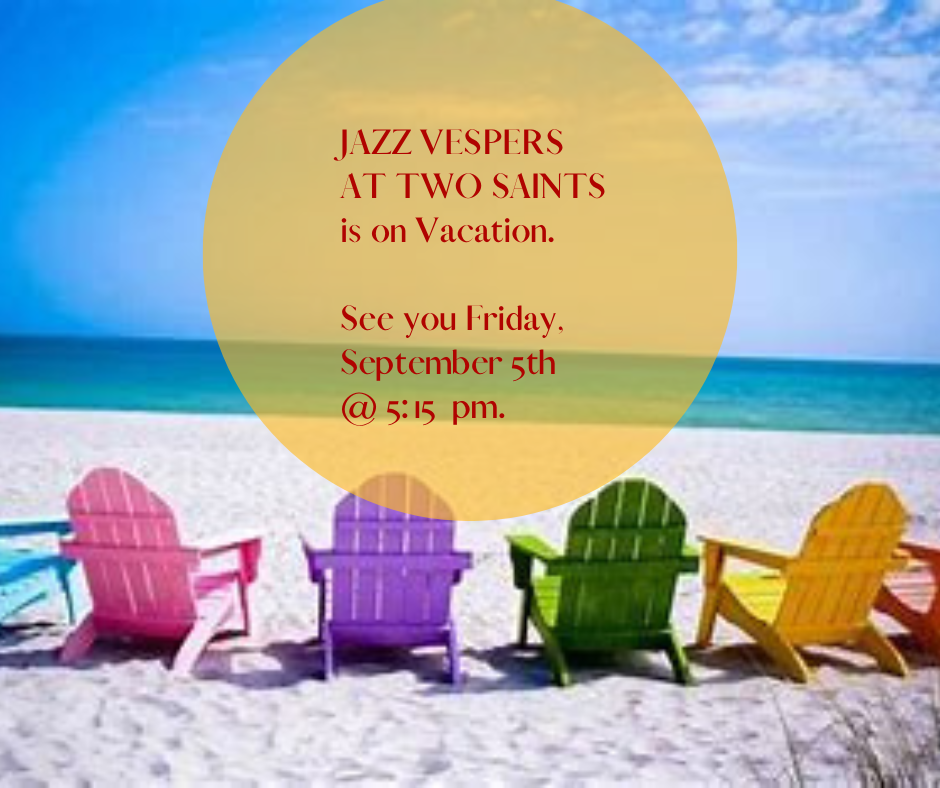A Community
We are an inclusive community of people, striving to be loving and forgiving to ourselves and others and are strengthened by our diversity and unity in the breaking of the bread.
Welcome to Two Saints where there's always a place for you!
What is Ordinary Time?
Ordinary Time is the name often given by Christians to the season after the Feast of Pentecost. It begins on the Monday following Pentecost and continues through most of the summer and autumn. Ordinary time can be understood in terms of the living out of Christian faith and the meaning of Christ’s resurrection in ordinary life.

Sacristies of New York: Two Saints
Marianna Klaiman is currently working on a research project called Sacristies of New York: Textile Treasures of the Episcopal Church. She created the website www.sacrisitiesofny.com as a vehicle to get the word out about my research, book and database project involving a survey of ecclesiastical vestments and textiles across the state of New York. She recently visited Two Saints/St. Luke & St. Simon Cyrene to look at some of our hidden treasures. Here are some of her photos.

Rochester’s Oldest Church, the Underground Railroad, and the Legacy of Slavery
https://www.minorityreporter.net/post/rochester-s-oldest-church-the-underground-railroad-and-the-legacy-of-slavery
No Steeple Required: Bishop Kara Wagner Sherer on Reckoning, Repair, and Revolutionary Love
https://www.minorityreporter.net/post/no-steeple-required-bishop-kara-wagner-sherer-on-reckoning-repair-and-revolutionary-love
Save the Date
BIBLE STUDY. Bible Study from 9:00 am until 9:45 am in the chapel will resume in September.
August 31, 2025 - The Rector's last Sunday
Friday, September 5, 2025 - Jazz Vespers at 5:15 pm
Sunday, September 7, 2025 - The Rev. Virginia Tyler Smith, Director of Ministry, will preside and preach. She will lead a discussion on the next steps in calling a new priest following the retirement of the rector.
The Fifth Sunday after Pentecost
July 13, 2025
Past Services available @2saintsroc418

